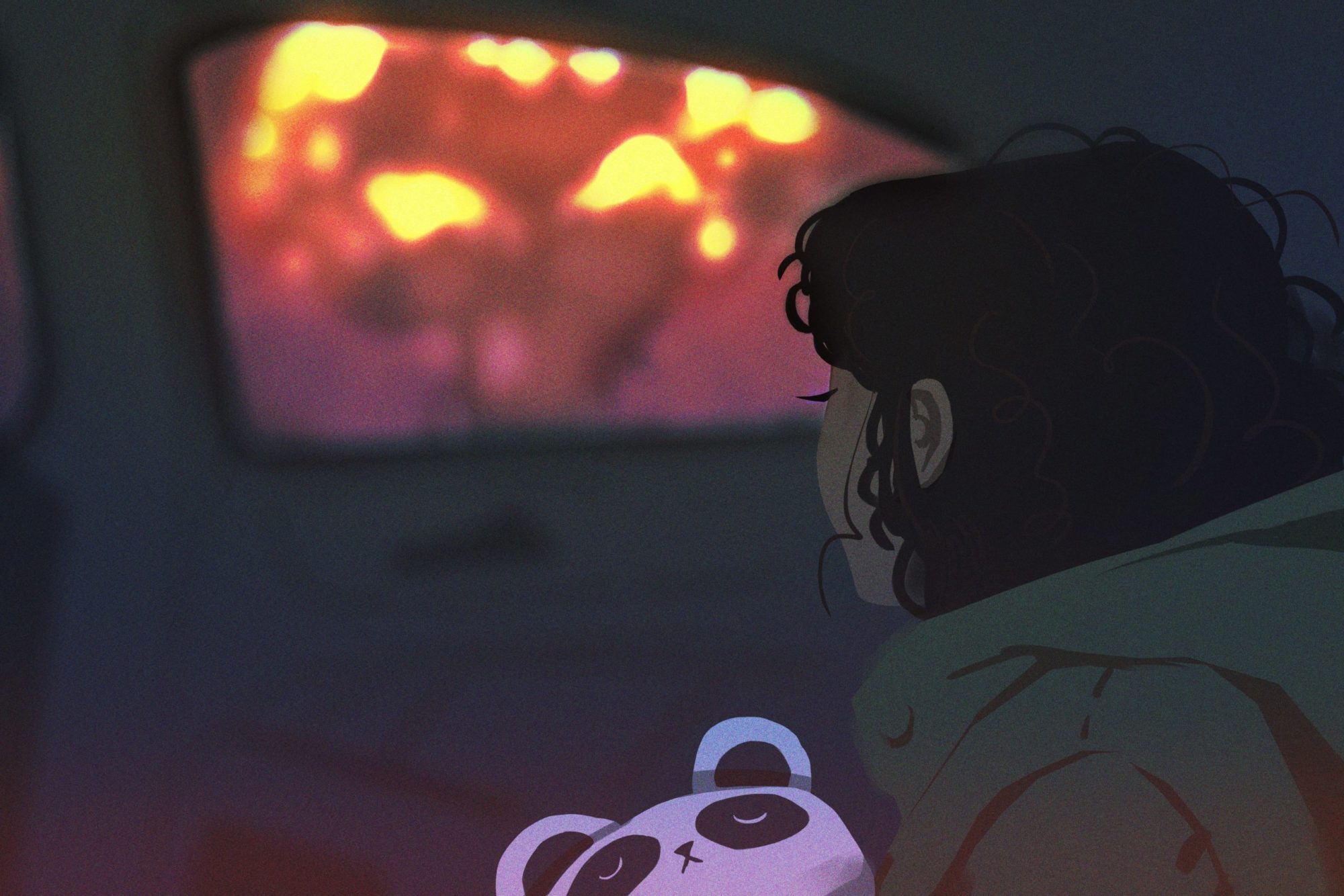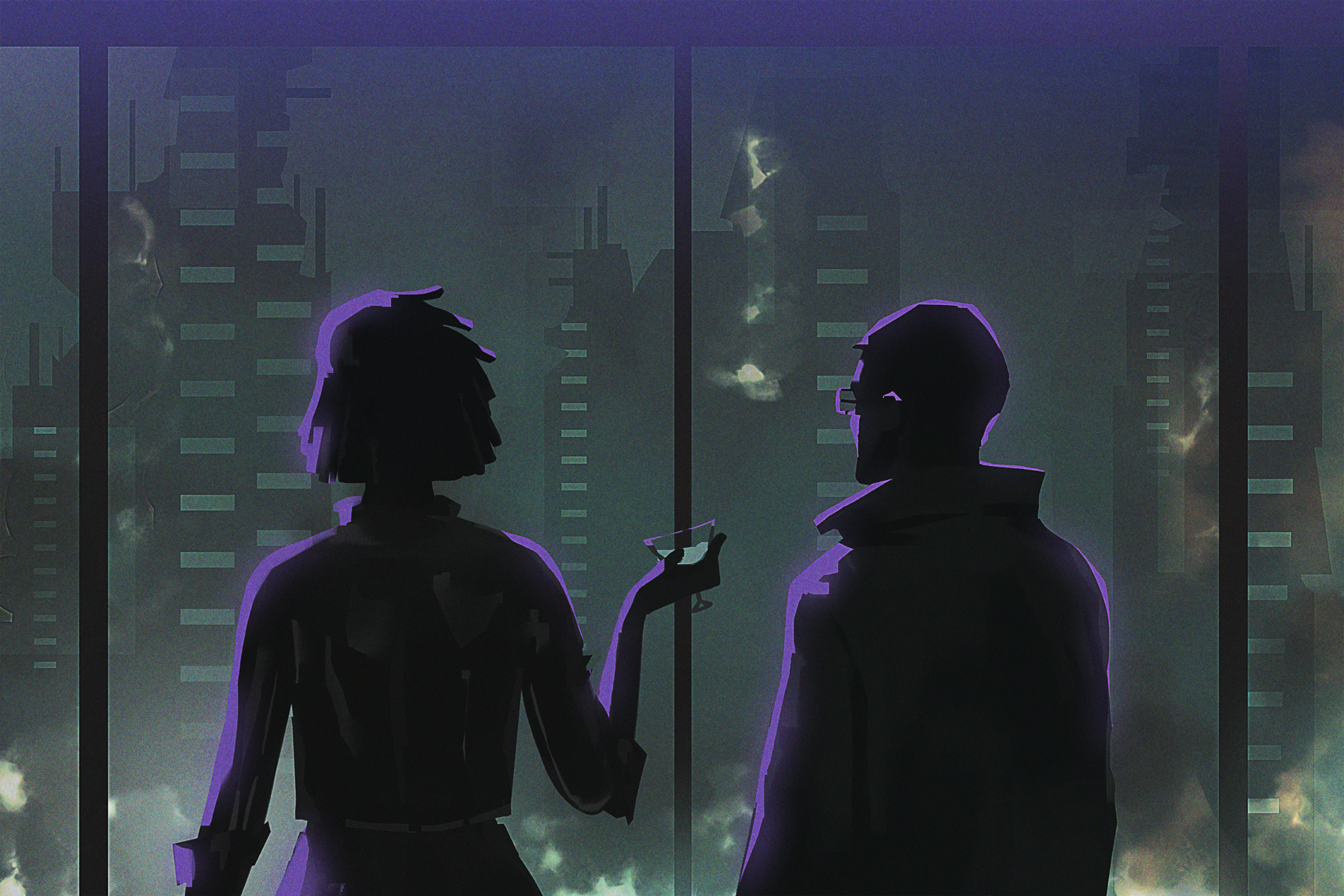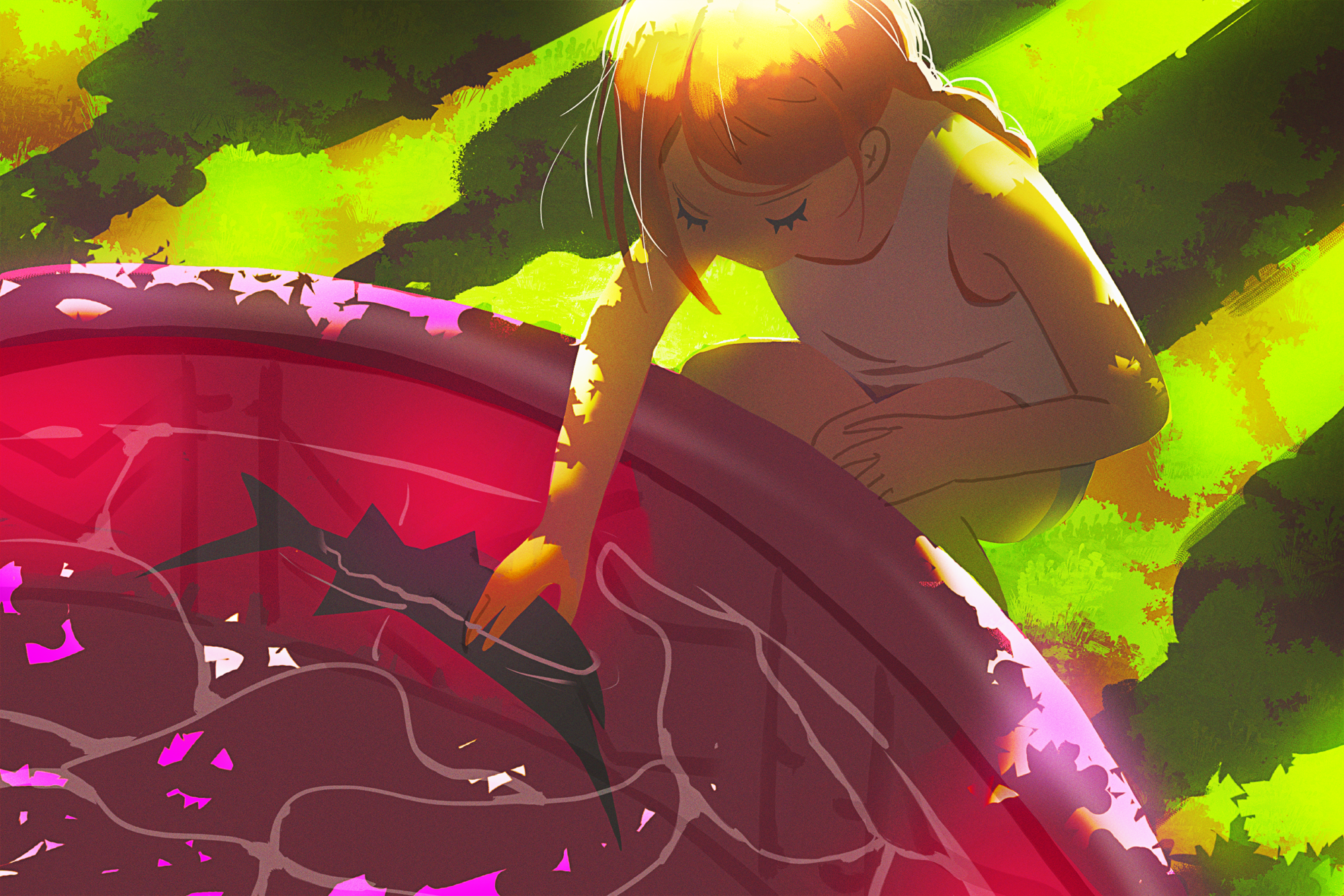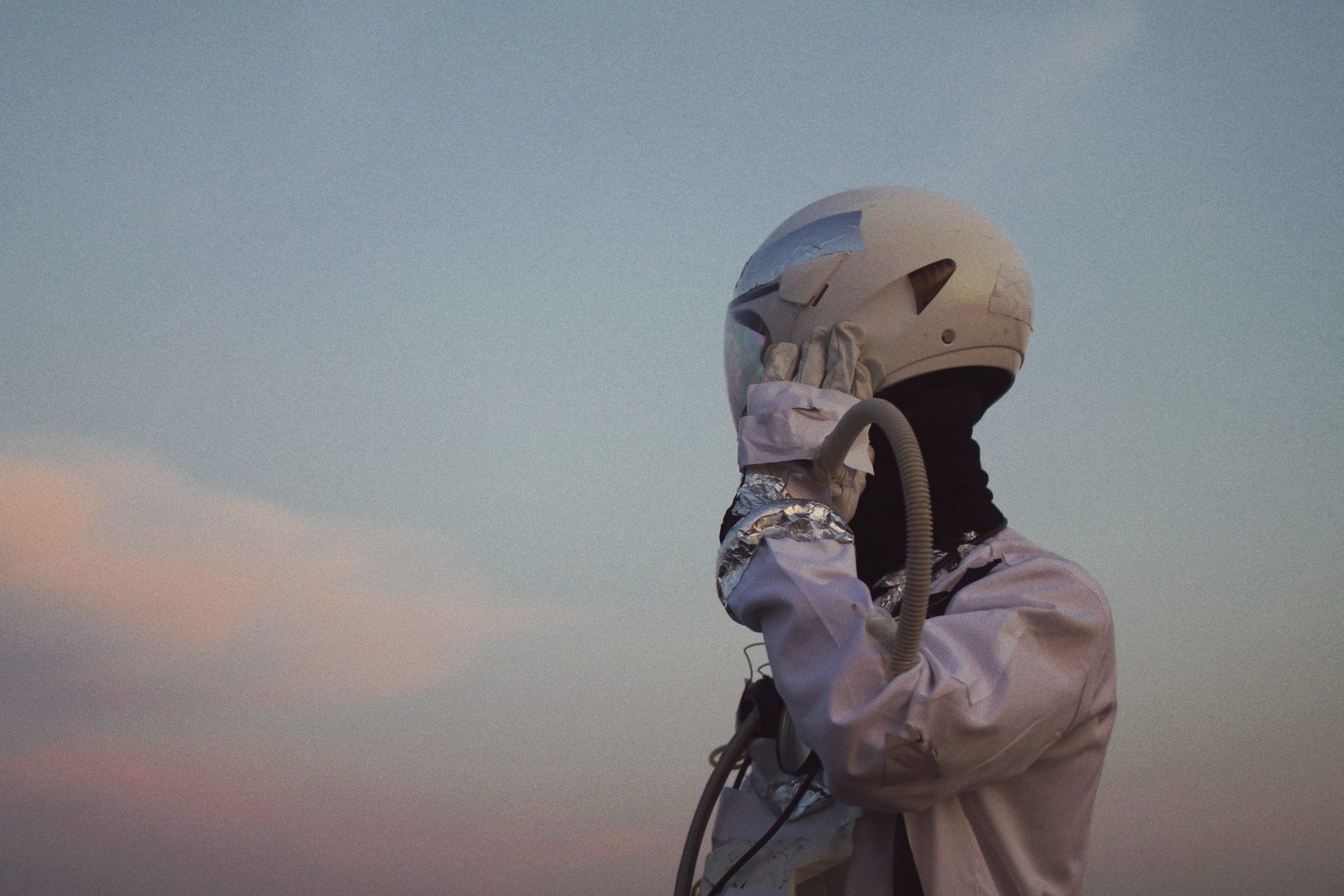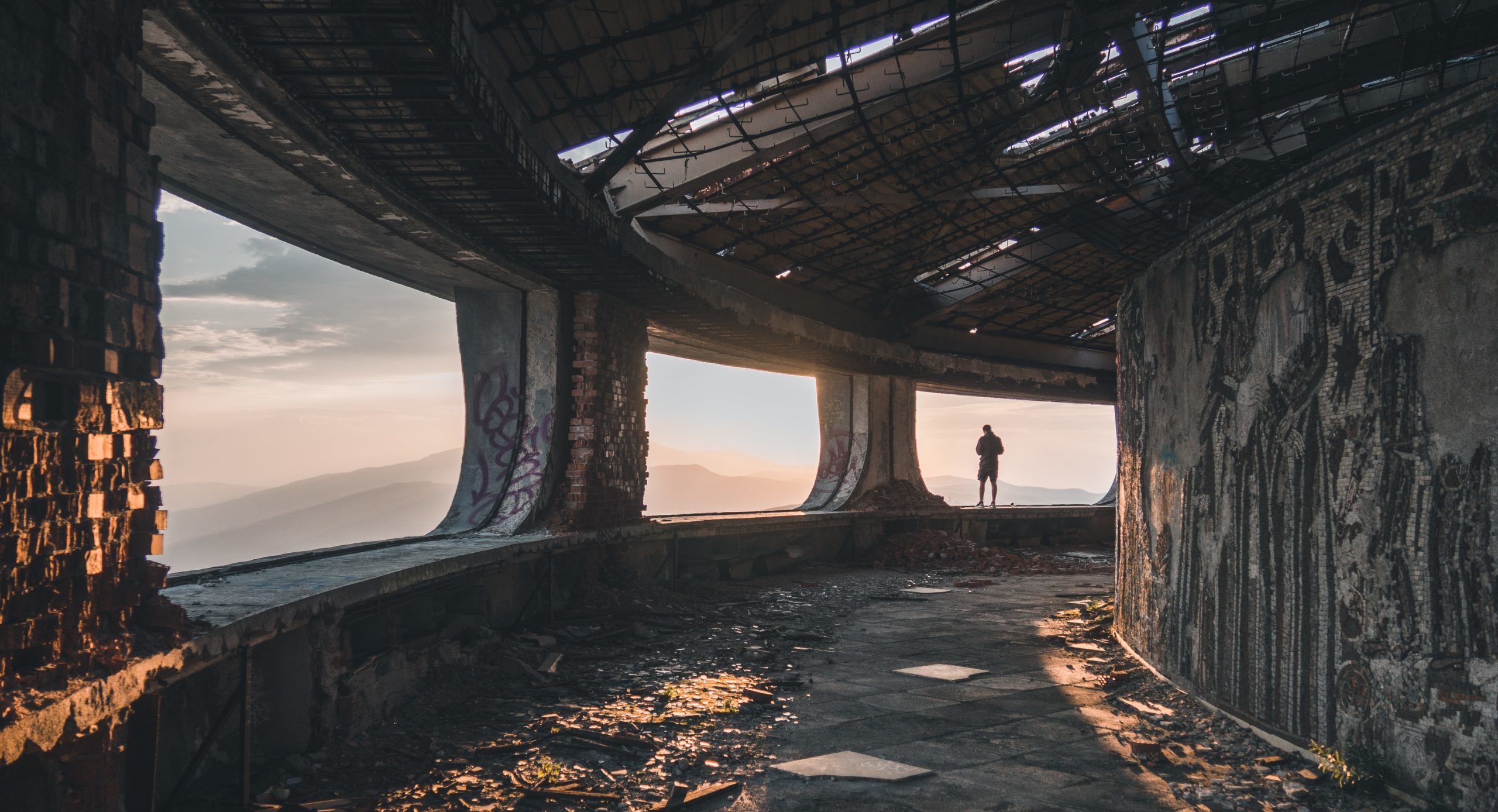In our first-ever short story contest, we invited writers to imagine an event, conflict, or situation that could make us care about — and fear — nuclear weapons again. “Five Twenty-Nine A.M.” is our second-place entry.
The blast woke Martin Wallace. Having lived in the Bay Area for nearly twenty years, Martin had experienced — and slept through— his fair share of earthquakes. But this was different. There was no grumble, no build up, no chinaware clinking in the cabinet. It was a single crack, and the house felt like it lifted inches off its foundations.
Molly Wallace, lying next to him, jolted awake. She looked around for a moment at the moonlight filtering through the dust. That moonlight was now tinged with red.
But it was their daughter, Lilia, who was first to break the silence.
“Mom? Da-a-ad?”
“Come here sweetie,” called Molly. Glancing at her husband, she lowered her voice. “What was that? An earthquake?”
Martin shook his head, but said, “Yeah… probably an earthquake. I’ll go take a look outside. Make sure everything’s alright.”
He rose from the bed, quickly pulling on a robe and slippers. Martin glanced over at the clock. 5:29 a.m., an hour before he was supposed to wake up. He already knew the ill-timed quake would be the grumble of the office.
Lilia met him in the doorway, rubbing the sleep out of her eyes. Martin forced a smile. “Hey there, you stay in here with mommy until I get back, alright?”
Lilia nodded, and Martin stepped around her. In the kitchen, he carefully tiptoed around the toys and boxes still strewn about, remnants of Lilia’s seventh birthday party last night. Avoiding impaling his foot on some discarded Legos, Martin stepped outside…
…into a nightmare.
It was just before dawn, but the horizon was already an ominous red. Sirens, distant and near, mixed with the howls of dogs and the indistinct yelling of people, becoming a cacophony of fear. Martin saw his neighbors, standing much like he was, eyes affixed across the bay, on the cloud slowly lifting into the sky—a bright, violent, mushrooming orange cloud.
I.
“We need to leave,” Martin said to his wife as he pulled a few shirts and some jeans from a drawer. “Grab some clothes, we’re going…” he looked at Lilia “…on a trip.”
“Martin what’s going on?”
“Daddy?”
“Sweetie, go grab your favorite clothes and a few toys from your room and go to the kitchen, alright? Daddy will explain everything in the car, okay?”
Molly ushered Lilia down the hallway. When the child disappeared in her room, Molly turned back to her husband.
“Martin…”
“There’s been an explosion. It looks bad… It looks nuclear, like you see in the movies. Big mushroom cloud and everything.”
“Jesus… maybe it’s something else. Maybe it’s just—”
“And maybe it’s not. We need to go now, before everyone in the city does.”
“You-you’re right,” Molly stood. “Grab my clothes, I’m going to help Lilia.”
II.
Molly held Lilia close as they crossed the lawn, putting herself firmly between her daughter and the bay. Lilia clutched her mother’s robe tightly until she was safely in the backseat of the car. The sun had just crested the horizon by the time the family pulled out of their driveway.
“We should take 24,” Molly said as they started down the street, still mercifully abandoned, as if the entire neighborhood was still in shock.
“The tunnel’s going to be a nightmare.”
“580?”
“Yeah, 580, good idea.”
Martin drove toward the highway. Molly looked over her shoulder at the backseat, where Lilia had her head resting against the glass. Her eyes were transfixed across the bay, where the glow of the mushroom cloud had faded just in time for the light of the sun to catch it, throwing it into sharp relief against the morning fog.
Her eyes were transfixed across the bay, where the glow of the mushroom cloud had faded just in time for the light of the sun to catch it, throwing it into sharp relief against the morning fog.
“Daddy, what is that?”
“Don’t look over there sweetie. Don’t you worry, we’re safe, everything’s going to be okay.”
Lilia’s eyes didn’t move from the mushroom cloud.
Every few miles they drove, a cluster of ambulances would fly by on the opposite side of the highway—the only ones going toward the city.
“We should turn on the radio,” Molly said.
Martin nodded. When he touched the dial, he noticed his fingers were shaking. He quickly returned his hand to the wheel, gripping it tightly.
“… again for those just tuning in,” the voice on the radio crackled. “We have confirmed reports of a nuclear detonation in San Francisco.”
Martin wondered how the announcer kept his voice so steady.
“The government has advised everyone affected by the blast to shelter in place. Please do not go to your car. Leave the road open for emergency responders. The safest place for you to be right now is in your home. Again, the government is advising that everybody in the area of the blast please shelter in place.”
A sea of taillights extended in front of them. Martin cursed under his breath, slowing the car. Ahead, a din of car horns and angry voices grew louder and louder. Some people had pulled onto the shoulder to try to get around. Others had left their cars entirely, running down the highway on foot.
Martin drummed his fingers on the wheel.
“You should get off at the next exit. We’ll make better time on the side roads.”
Martin nodded as the cars inched forward. You couldn’t fit a playing card between the bumpers.
The radio droned on. “President Martinez is reportedly aboard Air Force One and is being briefed on the situation. Government statements have said that the explosion in San Francisco had a relatively low yield and was believed to be a deliberate attack. The White House has not yet publicly attributed the detonation, but many believe that China is the only reasonable suspect, which would be a dramatic escalation from the conflict we have seen over the last few weeks in Chinese Taipei.”
“Turn it off, I don’t want to hear anymore.” Molly’s face was set in stone. Her eyes were locked straight at the cars ahead of them, as if through willpower alone she could make them move.
They drove for another hour and a half, and Martin thought that they’d barely moved a mile. The exit was in sight, just a half dozen cars between them and their escape.
When Lilia spoke, Martin’s heart caught in his throat. “I don’t feel so good.”
“Don’t feel good, sweetie?” Molly turned to look in the back seat.
Lilia was pale, her skin an almost ghoulish hue. Molly put on a reassuring smile that was betrayed by her eyes. “Do you think you’re going to throw up?”
The cars inched forward.
“I dunno…” Lilia looked back out the window, swaying slightly in her seat.
“It’s gonna be okay, sweetie. Try to take a nap, okay?” When Molly turned back to the front, she looked nearly as pale as Lilia. Her lips pursed tight enough to fuse atoms.
The cars inched forward.
III.
“Mo-o-o-m I really don’t feel good.”
“We’re getting off this highway.” Martin swung the wheel around and pushed down on the gas. The car lurched to life. It scraped against the car in front of them, its bumper catching a car on the shoulder, but they pulled onto the ramp and escaped the jam.
Things moved slightly faster off the highway. There were still cars packed as far as the eye could see, but they moved, splitting across any road that took them further from San Francisco. They drove for a while as towns and neighborhoods blurred past.
“I think I’m going to throw up.”
Martin pulled the car over to the side of the road. Molly jumped out and helped Lilia from the car, leading her to an outcropping of trees. Martin grimaced and looked at the road as the sound of his daughter’s sick rose behind him. In all the cars on the road, he saw faces set straight ahead. No one even spared a glance his way.
Molly led Lilia out from behind the trees. “Do we have any water?”
Martin shook his head and silently cursed himself. Water. The first thing they always say to make sure you have in a disaster is water. And now, he runs out of the house with his underwear and nothing to drink.
Molly turned back to Lilia. “Don’t worry sweetie, we’ll stop and get some water, okay?” Lilia nodded silently as Molly helped her back into the car.
After she closed the door, Molly paused, looking over at Martin. “You don’t think it could be…”
“I… I don’t.”
“Do you even know what radiation sickness looks like?”
“No, but…” Martin swallowed. “We need to find a hospital.”
“The closest hospital is 30 minutes down the road,” Molly said, now back in the car, looking at the map on her phone. “There’s a gas station up ahead, we should stop and get some water.”
IV.
A man, nearly as unkempt as the gas station he tended, eyed them as they pulled in. Despite the mild weather, he wore a heavy coat and thick pants tucked into his boots.
“Stop!” he raised his hand as Martin started to get out of the car. “Don’t come any closer! Are you lot from San Francisco?”
Martin raised his hands. “Please, we just want to buy some water, we’ll pay double.”
“I can’t have you come and spread your radiation all over me and mine,” the man said, his eyes hard and his hand still raised. “I have to look after my own.”
“Please,” Martin pleaded, “it’s our daughter, she’s sick, we just need a bottle of water.”
“Sick?” the man frowned. Arm still raised, he took a big step back. “You aren’t coming any closer, you hear? Take your radiation somewhere else, I’m not dying for your sake.”
Martin opened his mouth to argue, but he glimpsed steel flashing from beneath the man’s coat. A large revolver glinted on the man’s hip.
“Martin, let’s go,” Molly said from the car.
The man’s eyes tracked Martin until he was firmly back behind the wheel. Only when the car door closed did the man finally lower his hand. For a second, Martin was gripped by a terrible fear. What if the man was right? What if it was radiation? What if it was already too late? The thoughts passed. They needed to get to the hospital.
For a second, Martin was gripped by a terrible fear. What if the man was right? What if it was radiation? What if it was already too late?
“How are you feeling, sweetie?” Martin asked as they pulled out from the station and fought their way back between two bumpers on the road. He looked over his shoulder at Lilia, who was sitting with her head against the window.
“A little better, I guess,” she said, but her skin still looked pale and cold.
Martin’s knuckles were white on the wheel as they drove in silence for what felt like hours. Finally, the trees gave way to another town. Martin exhaled a deep, ragged breath.
V.
The hospital waiting room was packed with people. A few were lucky enough to find a chair, but most were strewn across the floor, against the walls, wherever there was space. A human corridor led the way to the front desk.
After the nurse behind the counter, wearing a full white gown, goggles, and a mask, assured them that they would be called shortly, Martin led the family toward a spot directly beneath a TV. Martin could just barely hear the news anchor over the din of the waiting room.
“…that’s right Shawn, we are waiting now for the remarks expected to come from the President aboard Air Force One. What we know so far is that the weapon detonated in San Francisco had a low yield, less than either of the weapons used in Japan at the end of World War II. The White House has not yet released any estimates of the casualties, but sources indicate that it could be up to 100,000 immediate fatalities with as many serious injuries. Truly a horrific day for-”
A voice cut across the waiting room. “Lilia Wallace?”
Martin helped Lilia to her feet. They followed the nurse back into the heart of the hospital. A dozen steps in, she told them to stop and grabbed an instrument from a table – a Geiger counter. She turned the dial on its face and it began to click ominously.
“Hold your hands out please,” the nurse said before waving the detector up and down across their bodies.
“No contamination,” she said aloud as she wrote on a clipboard. “This way please.”
She led the family to a small room. Martin lifted Lilia onto the examination table as the nurse said that a doctor would be by shortly. A TV droned on in the corner of the room. Martin tuned the voices out.
A doctor walked through the door, an affable smile on his face. He introduced himself as Dr. Sindh before turning to examine Lilia, shining a flashlight in her eye, checking her lymph nodes, all the while chatting happily with her about her favorite cartoons and how her birthday party went. To Martin’s relief, his smile didn’t fade as he turned to address him and Molly.
“It’s almost certainly not radiation sickness.”
“Oh thank God.”
“Lilia’s just had a scary morning and when kids get real scared, well,” he shrugged his shoulder, “sometimes they throw up.”
Martin looked at Molly, her eyes filled with relief, and then Lilia, a little more color in her cheeks, now smiling happily back at him.
“I’m going to go get something to help steady her stomach,” the doctor said. “Then you all can be on your way.”
Martin hugged Molly and Lilia, his eyes stinging with tears. After everything, it might just be ok. As they embraced, the president stepped onto the TV screen.
“My fellow Americans,” the President began, his voice somber. “Today is truly one of the darkest days in the history of our great country. At approximately 5:29 this morning, Pacific time, the Chinese government carried out a nuclear attack against the city of San Francisco. This unprecedented attack is an affront to humanity. Beijing has made a grave miscalculation. I vow to you that we will respond—”
Martin clutched his family closer.
“—in kind.”
Nadaskii is an illustrator. You will be able to purchase this work as a print and view her other work here.














